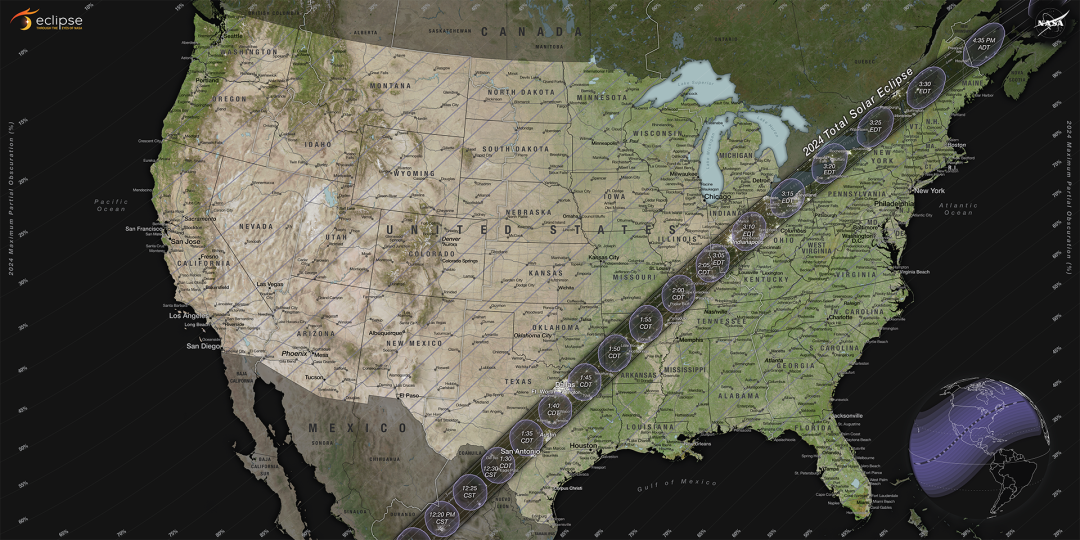How to Watch the Solar Eclipse in Sarasota

Image: NASA/Aubrey Gemignani
Unless you've been avoiding all media for the past few weeks, you're probably aware that a solar eclipse is happening this afternoon. And although Sarasota isn't in the path of totality this time—meaning we won't experience full darkness due to the moon blocking the sun—we will experience something called "a maximum partial eclipse," in which the sun will briefly become a smaller sliver.
What else do you need to know about today's cosmic event? Read on.

What is a total solar eclipse?
A total solar eclipse happens when the moon passes between the sun and Earth, completely blocking the sun. People located in the path of totality will see the sky darken and, weather permitting, may even see the sun’s corona, or the outer atmosphere, which is otherwise usually obscured by the brightness of the sun.
What time will the eclipse start?
The eclipse will start at 1:42 p.m. EST, peak at 2:59 p.m. EST, and end at 4:13 p.m. EST.
How much of the eclipse will we actually see in Sarasota?
About 64 percent.
What will the weather be like?
"Partly sunny and beautiful," with a high of 84 degrees, according to AccuWeather. As far as cloud cover, AccuWeather's hourly forecast notes that skies will be "mostly sunny" during eclipse hours. Fingers crossed!
What do I need to watch the eclipse?
Above all, protective glasses. Never look directly at the sun during an eclipse. Says NASA: "Except for a specific and brief period of time during a total solar eclipse, you must never look directly at the sun without proper eye protection, such as safe solar viewing glasses (eclipse glasses). Eclipse glasses are not the same as regular sunglasses; regular sunglasses are not safe for viewing the sun. You can only take your glasses off during the short time when the moon completely obscures the sun, known as the period of totality. If you don’t have eclipse glasses, you can use an indirect viewing method, such as a pinhole projector, which projects an image of the sun onto a nearby surface."
What are the metaphysical implications of the eclipse?
We break that down right here.
When will the next total solar eclipse happen?
Not for another 20 years: August 23, 2044.


